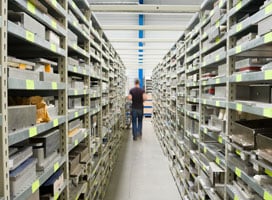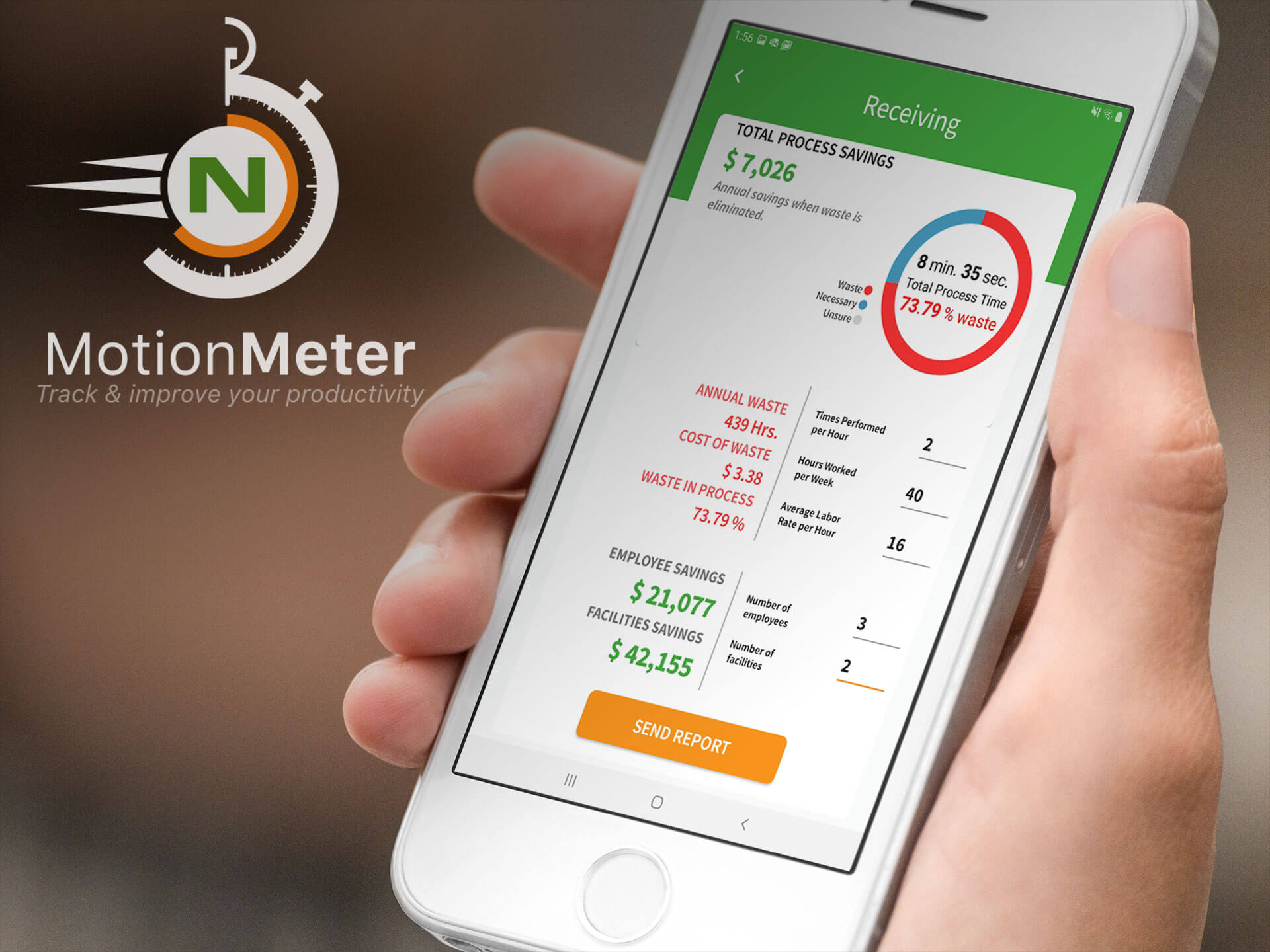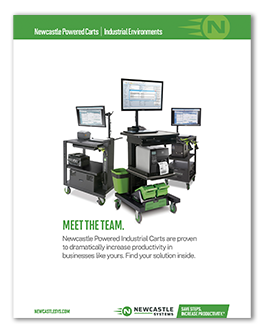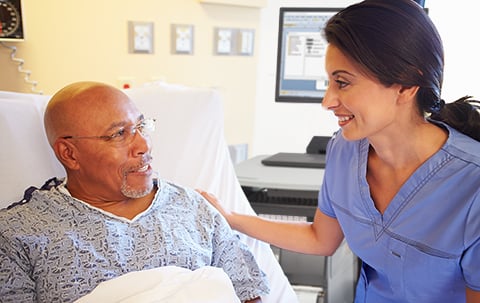
Mobile carts in the healthcare industry help medical professionals provide efficient, fast, and safe patient care. Having a well-equipped mobile medical workstation makes taking care of simple to complex procedures on the go much easier and less stressful on the patient, which can also save time and reduce errors.
Stocked with a variety of supplies necessary to meet different medical needs, some examples of mobile medical carts include medication carts, IV carts, code carts, nursing carts, anesthesia carts, procedure carts, and more. No matter the desired purpose of the cart, certain universal features are a must.
Here are ten things medical workers want in a mobile medical cart or workstation on wheels to make the solution safe, cost-effective, and useful.
1. Proper Size and Weight Cart
The last thing you want to do is make things more difficult for your medical staff by overloading a cart or even making it unsafe. Medical workers certainly don’t want to be asked to push something so heavy they’ll get injured.
A mobile medical workstation should be the proper size and weight for the function it’s meant to perform. These workstations can be constructed from lightweight materials, be outfitted with the most recent technology, and include high-quality casters that make them easy to move from place to place.
2. Adaptable Design
Because mobile medical carts are used for so many different functions, they need to be adaptable to a healthcare provider’s needs. In other words, the provider should be able to configure the cart so it is as efficient, productive, and ergonomic as possible.
Medical carts come with many different options for healthcare providers to customize the look, feel, and functionality of the solution. Examples include optional accessory mounts, adjustable drawer dividers, attachable work surfaces, and multiple monitors.
3. Dependable Battery Life
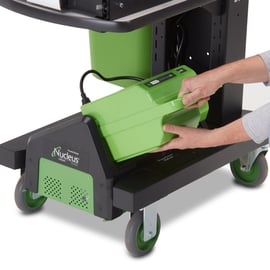 In a healthcare environment, there are a lot of technical requirements that medical carts can help fulfill. For example, these carts can be used for electronic charting, printing, and diagnostic functions, just to name a few. These functions require dependable battery life.
In a healthcare environment, there are a lot of technical requirements that medical carts can help fulfill. For example, these carts can be used for electronic charting, printing, and diagnostic functions, just to name a few. These functions require dependable battery life.
Mobile medical carts can be equipped with uninterrupted power through swappable batteries. These batteries can last an entire shift and then be quickly swapped out for fresh ones, so the next shift doesn’t have to wait for charging.
4. Clutter-Free Space
Clutter on a workspace invites errors, which isn’t something you don’t want or need in a healthcare environment. If a physician, nurse, or tech has to continuously search for items, this can impact the quality of care and the patient experience.
Mobile healthcare carts should offer clutter-free space. This can be accomplished with various storage options, such as shelves and drawers, as well as multiple clips and hooks to hang equipment and supplies.
5. Easy Cleaning
Roughly 1 in 31 hospitalized patients are diagnosed with a healthcare-associated infection (HAI) daily. These can result from bacteria introduced during a procedure or exposure during routine care in a healthcare facility.
Healthcare workers can reduce the risk of HAIs by having mobile medical carts that are easy to clean. These will ideally be carts made from sturdy materials that also have smooth surfaces and rounded corners, so there are fewer small spaces for pathogens to collect.
6. Adjustable Height
Most mobile medical carts will be used by different healthcare providers over several shifts and even across multiple departments. Because of this, these carts need to be configurable to make each person’s job as easy and efficient as possible.
Having carts with adjustable height is one way to accommodate the various height differences among the staff. When a healthcare worker doesn’t have to unnecessarily lean over to stretch to do their work, this can prevent injuries and make work more productive.
7. Quiet Movement
Healthcare facilities should evoke a sense of peace and calm, not chaos or inefficiency. No one wants a mobile workstation that squeals like a rusty shopping cart as it’s pushed down the hallway. After all, some patients might be under stress or sleeping!
Fortunately, mobile medical carts can be equipped with high-quality casters that allow for quiet and smooth movement. These make it easy for them to transfer from place to place and quiet as they travel.
8. Lockable Storage
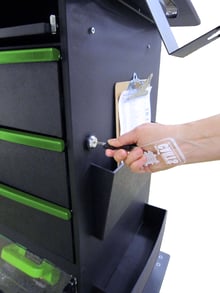 Stolen controlled substances, medication, and expensive medical equipment cost the healthcare industry millions of dollars annually. Additionally, having these items in the hands of untrained people or sold on the black market creates a safety risk and a liability issue for a medical provider.
Stolen controlled substances, medication, and expensive medical equipment cost the healthcare industry millions of dollars annually. Additionally, having these items in the hands of untrained people or sold on the black market creates a safety risk and a liability issue for a medical provider.
Mobile carts may be left unattended while staff tend to patients or take care of other duties. These carts should have locking storage options to keep medication and other materials secure.
9. Trash and Sharps Containers
Even though most clinics and hospitals appear to be clean and tidy, they don’t get that way without significant effort. And this is necessary to prevent infections and adhere to various state and federal regulations.
One feature most medical carts must have is efficient medical waste disposal containers. Depending on the cart’s function, this might include a single waste bin. In many cases, it will also include having a sharps container for the safe disposal of used needles.
10. Customizable Technology
Technology has innovated the way we deliver healthcare services, making these processes more efficient, cost-effective, and patient-friendly. Instead of asking patients, who already don’t feel well, to move from place to place, the care can come to them.
Mobile healthcare carts should be completely customizable in terms of the technology they offer. This might include various diagnostic tests, multiple monitors for charting, barcode scanners for recordkeeping, and even mobile printers.
When medical workstations were first used to assist healthcare workers, they weren’t much more than tables on wheels. The solutions we have today have many more features that make these jobs easier, safer, and more effective. From standard to customized features, medical workstations reduce a lot of repetitive tasks, creating a more positive working environment and a better overall patient experience.


